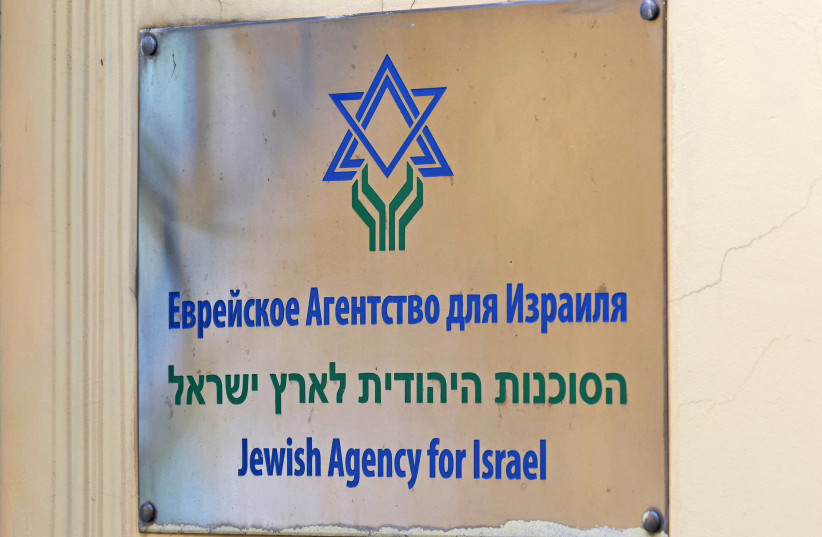“The government has abandoned the Jewish community in Russia,” Absorption and Diaspora Affairs Committee Chairman MK Oded Forer (Yisrael Beytenu) said in the Knesset on Monday.
Forer, a member of the opposition, said that not only did the government cancel the relevant special assistance and grants for Russian immigrants, it hasn’t even implemented any changes since this weekend’s dramatic events in Russia. There are 13,000 families of Russian Jews or descendants of Jews waiting to immigrate to Israel, according to government statistics.
On Friday, the Wagner Group, a semi-private military headed by Yevgeny Prigozhin, led an armed rebellion against Moscow, with the units withdrawing from Ukraine and seizing Rostov-on-Don in Russia. The rebellion was stopped on Saturday through mediation from Belarusian President Alexander Lukashenko.
An Aliyah and Integration Ministry representative said at the committee meeting that the situation in Russia “has not changed for the worse in the last month,” and so “there is no need” to offer Jews from these countries a service that is “unusual or different from what was before.”
The representative further said that the ministry closed two more “One-Stop-Shops” because “there is no demand for this service. We will have one shop as of July 1.” At these “shops,” representatives of all relevant government ministries and agencies meet in Israel with the future immigrant, and only then would citizenship be granted.

Now, this service will now only be relevant to olim (new immigrants) from Ukraine after being extended twice by Aliyah and Integration Minister Ofir Sofer.
The committee also called the Jewish Agency to “prepare an array of dedicated airplanes” to bring masses of olim from Russia “before it’s too late. We need to say clearly to all members of the government that this is not a simple situation and therefore we should be investing in urgent measures,” he said.
Part of Forer’s criticism towards the government is that it has also canceled the “Go-No-Go” system of expedited aliyah from Russia. In this program, Nativ, a government agency charged with approving candidates for the Law of Return, meets the candidates for a short interview, after which they can board an airplane – funded by the government.
Nativ head Neta Briskin-Peleg said at the committee discussion that her office will reassess the situation in a few days. She revealed that Russian Jews who are interested in meeting with a consul on behalf of Nativ will need to wait at least eight months, so the aliyah rate is quite slow. She also explained that there isn’t enough space in all of the embassies and consulates across Russia to do their work, and that they are “fully prepared in terms of personnel, but we do not have enough space to receive an audience.”
Sofer responded to the report about canceling the ability of new Russian immigrants to Israel to visit a “One-Stop-Shop,” stating that “according to our data, most of the immigrants from Russia, about 3,000 in June, preferred immigrating through the normal immigration route, as opposed to only 200 olim who used the ‘Go-No-Go’ fast track. In addition, in the past two weeks, there were only about 60 requests,” for using the fast track.
“The One Stop Shop route will continue to operate in the usual format for olim from Ukraine and for special humanitarian cases of olim from Russia and Belarus,” Sofer said.
At these “shops,” representatives of all relevant government ministries and agencies would meet with the future immigrant, in Israel, and only then would grant them citizenship. This service will now only be relevant to olim from Ukraine as of the end of June, after it was extended twice by Aliyah Minister Ofir Sofer.
Neta Briskin-Peleg, head of Nativ said at the committee discussion that “only in a few more days we will see if there is panic and an increase in the desire for aliyah,” since their offices were closed during the weekend. She revealed that Russian Jews who are interested in meeting with a consul on behalf of Nativ will need to wait at least 8 months, thus, the rates of aliyah are slow. In addition, Briskin-Peleg explained that there isn’t enough space in all of the Embassies and Consulates across Russia for their work. “We are fully prepared in terms of personnel, but we do not have enough space to receive an audience,” she said.
“At the same time, the ministry continues to assist all Jews who wish to immigrate to Israel to do so and be absorbed in the best possible way,” he said, adding that he is “in contact with official diplomatic officials, regarding the possibility of a massive wave of immigration. If necessary, we will find a solution to help their immigration and integration in the best possible way.”
